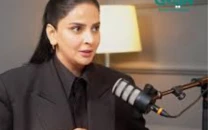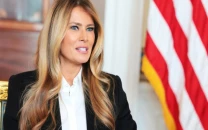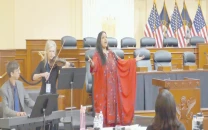Eurovision rewrites rulebook
Accusations, politics and public outrage reshape contest's future

Organisers of the Eurovision Song Contest announced sweeping changes to the competition's voting system on Friday, setting out what they described as a necessary overhaul intended to restore trust after two turbulent years dominated by controversy involving Israel's participation.
The European Broadcasting Union (EBU), which oversees the event, confirmed that the reforms aim to reinforce transparency, curb political influence and ensure a fairer balance between public enthusiasm and jury expertise ahead of next May's edition in Vienna.
The EBU disclosed that the number of votes each viewer can cast will be halved from 20 to 10, following concerns that concentrated voting driven by state-backed campaigns had distorted outcomes in recent contests.
Organisers said the shift is designed to reduce disproportionate support for any single entry while encouraging audiences to distribute votes across a broader range of performers.
The new rules also introduce tighter restrictions on promotion to prevent governments or third parties from attempting to sway audiences, alongside greater scrutiny of coordinated or fraudulent voting activity.
Eurovision officials stated that they had listened closely to broadcasters who raised objections in recent months, especially those voicing alarm about alleged interference linked to Israel's entries.
Tensions intensified earlier this year when several countries, including Spain, Ireland and the Netherlands, threatened to withdraw from the 2026 contest if Israel were allowed to participate, citing both humanitarian concerns related to Gaza and fears about the integrity of Eurovision's public vote.
Other broadcasters indicated they were considering similar action, signalling the depth of unease that had begun to overshadow the event's celebrations of music and cultural exchange.
Dutch broadcaster AVROTROS, one of the most outspoken critics, highlighted what it described as a "serious violation of press freedom" by Israel in Gaza while also accusing the country of "proven interference" in the contest.
The broadcaster alleged that lobbying efforts aimed at overseas audiences played a role in securing a surge of support for Israel's 2024 and 2025 entrants, who received limited backing from juries but strong approval from public votes.
Eurovision director Martin Green said in response that the EBU was taking "clear and decisive steps" to ensure the competition remained neutral, adding that the contest "must not be instrumentalised." His statement echoed demands from broadcasters for the EBU to demonstrate stronger safeguards against political influence before next year's edition.
EBU members were expected to vote this month on whether Israel should be permitted to compete in Vienna. However, the organisation announced that the decision would instead be taken in December, citing a fragile truce in Gaza and the desire to first assess whether the new rules could resolve members' concerns.
If Israel is excluded, it would not be unprecedented. Russia was barred in 2022 after its invasion of Ukraine, and Belarus was excluded a year earlier following political repression surrounding the re-election of President Alexander Lukashenko.
Balancing juries
Among the most significant adjustments is the return of professional juries to the semi-final stage. The measure reverses a recent move toward public-only voting, which had amplified the impact of social media mobilisation and organised support groups.
Under the new system, jury scores and public votes will each account for roughly half the outcome, giving industry professionals renewed authority to moderate results. Eurovision has long balanced public excitement with jury oversight, but the last two editions exposed how easily that balance could be disrupted.
Israel's entrants, Eden Golan in 2024 and Yuval Raphael in 2025, climbed dramatically in rankings due to overwhelming public votes despite receiving limited jury support. Social media posts from Israel's foreign ministry, encouraging people to cast multiple votes, added further controversy.
While Israel has rejected accusations of interference, it has frequently denounced what it calls unfair criticism linked to the Gaza conflict. Israeli broadcaster Kan has insisted the country should remain part of Eurovision and expressed confidence that organisers will uphold the contest's apolitical character ahead of its seventieth anniversary.
The debate surrounding Israel's involvement has unfolded against the backdrop of deep divisions in Europe over the Gaza war. Several broadcasters said they could not justify participating alongside Israel while the humanitarian situation remained severe, reflecting a growing public mood that demanded a more robust stance from cultural institutions.





















COMMENTS
Comments are moderated and generally will be posted if they are on-topic and not abusive.
For more information, please see our Comments FAQ